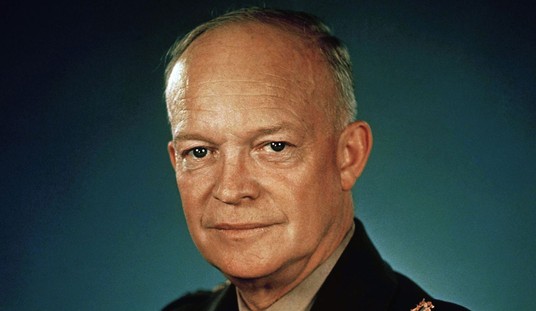At the start of the Nazi regime, Joseph Goebbels encouraged Germans to boycott Jewish-owned businesses. Within a short time, Nazi thugs had painted Stars of David or written “Jude” or “Juden” across Jewish-owned storefronts throughout Germany.
We look back with horror at this today.
Professor John Culhane of Widener University School of Law is proposing a new version of this: a requirement that businesses that have a religious objection to homosexuality, and that would prefer not to offer services for gay couples that want to get married, should be required to state their objection on the outside of the business:
Why not simply remind the objectors — I’d support a law spelling this out — that they have a right to clearly state that they oppose same-sex unions and would “prefer to step aside” … for religious reasons. There might even be standard, respectful language suggested (not mandated, but perhaps bulletproof), making clear that the proprietor’s objection is based on religion, not animosity.
It’s not quite as blunt as “Juden,” but the purpose is the same. Over at Volokh Conspiracy, professor Dale Carpenter of the University of Minnesota Law School speaks approvingly of professor Culhane’s proposal — and it’s not surprising. As one of the commenters explains: “I kinda like the idea about forcing them to post it if they are going to discriminate. Then all the young people like me, who are both more likely to be the ones having weddings and more likely to be supportive of gay marriage, will boycott the bigoted florists/dressmakers/bakers/etc. and they will all go out of business.”
Just like the goal in Nazi Germany: make a religious minority suffer financially until they go out of business.
I have always been of mixed feelings about anti-discrimination laws. On the one hand, I’m horrified that government is telling private businesses with whom to do business. I wouldn’t shop at a store that discriminated based on race, religion, sex, or national origin — but they have that right, because a government strong enough to prohibit such discrimination is also strong enough to require it. And that’s the reason why I am, in principle, opposed to such laws. But in practice, I have been prepared to tolerate them, at least with respect to race.
For many decades, state and local governments did not simply allow racial discrimination by private businesses — they required it. The landmark case Plessy v. Ferguson (1896), which declared “separate but equal” constitutional, involved a Louisiana statute that required railroad companies to segregate — with fines for the railroad and the officers of the corporation for failure to do so. Similar state laws requiring interstate bus companies to segregate passengers persisted until 1946, when the Supreme Court struck them down.
State legislatures passed these laws requiring racial discrimination because they knew that without government intervention into the marketplace there was a very real possibility that some greedy entrepreneur who lacked sufficient white pride would look at the only color that really mattered: green. There were similar state laws requiring discrimination in employment based on sex — upheld, amusingly enough, by the Supreme Court after Roosevelt’s threat to pack the court took it down a more liberal road.
I am under no illusion that the absence of these laws requiring discrimination was enough to break all vestiges of the old system. These laws reinforced social pressure for discrimination — and the repeal of those laws wasn’t enough to wipe out those attitudes overnight. I grudgingly accepted the need for laws prohibiting discrimination when they were first passed, at least with respect to race, where many governments had a long history of requiring and encouraging discrimination against blacks. The need for them becomes less obvious as each year passes.
However, the analogy between homosexuality and race simply doesn’t work. If you walk into a store, your race is immediately obvious. Short of wearing a hood and covering your hands, it will be immediately obvious if you are black or white. Unless you choose to be open about your sexuality while in the establishment, no one is going to know what your preferences are. The case for anti-discrimination laws based on homosexuality just isn’t that strong, and the case for a business owner having the right to choose with whom to do business is very strong.
When I was young, I was actually pretty liberal. Homosexuals argued that what consenting adults did in private was none of the government’s business, and that seemed like a pretty compelling argument to me. You don’t want the government telling you what you can do with another adult? Fine. Now the tide has turned, and homosexuals are having the government tell other adults: “You must photograph my same-sex civil union, or pay a huge fine.” I am flabbergasted that two law professors are coming up with ways to require business owners to declare their disapproval of homosexuality on the front of the store to avoid lawsuits.
Many years ago, a business owner that I knew was very supportive of the Libertarian Party, but she was reluctant to put any campaign posters on the front of her store. This was a very liberal area, and she was understandably afraid of vandalism, broken glass, and so on. The proposal of Culhane and Carpenter will doubtless result in a lot of broken glass — or as it would have been said by the same crowd some decades back: “Kristallnacht.”









Join the conversation as a VIP Member